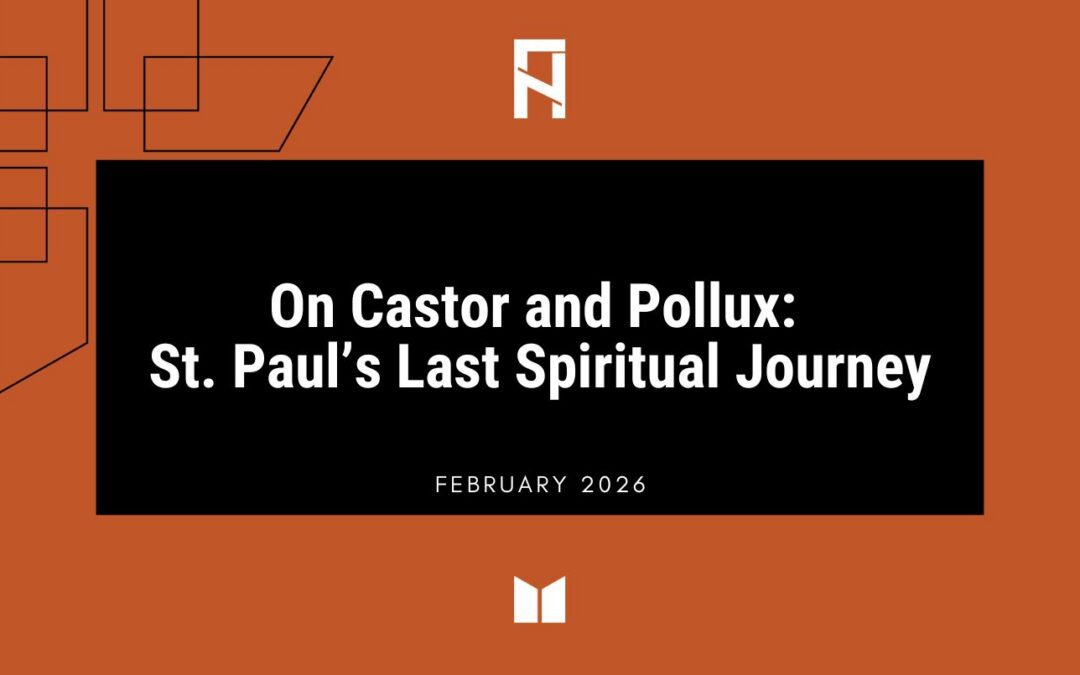Similar to the hunt for Sasquatch, we chase after success and significance, only to find them elusive and uncertain. Like a mythical creature in the forest, we wonder: Where and how do I find it? And why is it always a moving target?

By the Man in the Mirror Team
For more than 60 years, people have been chasing after a creature called Sasquatch—or “Bigfoot.” The discovery of large, mysterious footprints in Northern California launched a hunt to find him that hasn’t slowed down since—with reported sightings in nearly all 50 states but no compelling evidence. Animal Planet even ran an 11-season series called Finding Bigfoot, but—spoiler alert—they never did “find Bigfoot.”
Similar to the hunt for Sasquatch, we often chase after success and significance, only to find them equally elusive and uncertain. Like a mythical creature in the forest, we wonder: What does it look like? Where do I find it? And why does it always seem to be a moving target?
Aiming for a Moving Target
Our team interacts with thousands of men each year. Two pervasive commonalities we see are 1) men are distracted, and 2) men are overwhelmed. Packed schedules, a 24-hour news cycle, social media, and a never-ending bombardment of calls, emails, and texts take their toll.
Patrick Morley writes:
For many men, managing their lives has become like trying to tie two pieces of string together that are not quite long enough. They are long enough to touch, long enough to manipulate, and long enough to create hope that they can be tied together, but they simply are not long enough to tie the knot. Close, but not close enough. The result? A pervasive lack of contentment stalks them. They are restless. They wonder, Is this all there is? There must be more to life than this.
All of us want to feel a sense of purpose and meaning. We want to be happy. Blaise Pascal wrote of happiness in Pascal’s Pensees: “This is the motive of every action of every man, even of those who hang themselves.”
Yet, there is a sense among most of us that something isn’t quite right. And what we’ve tried—being a better husband, getting the promotion, taking that trip, etc.—hasn’t alleviated that feeling. It’s success sickness—the disease of always wanting more, but not knowing how to get it. The target moves relentlessly.
[click_to_tweet tweet=”It’s success sickness of sorts—the disease of always wanting more, but not knowing how to get it. The target moves relentlessly.” quote=”It’s success sickness of sorts—the disease of always wanting more, but not knowing how to get it. The target moves relentlessly.”]
The Source of Lasting Significance
In more than three decades of working with men, we’ve seen a shift around the areas of significance and success. A generation or two ago, a lot of guys defined those things primarily around their careers and the balance in their bank accounts. We were helping them refocus on their key relationships, reconnect with God, and rebalance their lives as recovering workaholics.
Today, we hear and see more nuanced pain points, as the culture’s values and messaging about success have evolved. Our culture defines significance as coming from two core values:
- Personal Autonomy. I am the one who gets to define reality. I get to decide what’s true, what’s just, and what’s right.
- Self-Actualization. I get to seek fulfillment on my own terms. I have to follow my heart and do what I want and what I feel in order to be fulfilled.
The center of both of these values is, of course, self. And therein lies the issue; it sounds good at first, but these values leave so many of us discontent and wanting. When our understanding of success and significance is rooted in self-fulfillment, they will always be just beyond our grasp.
Why? Personal autonomy and self-actualization are the opposite of the call of Jesus, and He alone satisfies. Jesus said if you want to save your life, you’re going to lose it. But if you’re willing to lose your life for His sake, then you’ll find it again. The reality is we can either seek for significance as an avenue for self-fulfillment or we can seek it out of a proper relationship with God.
[click_to_tweet tweet=”When our understanding of success and significance is rooted in self-fulfillment, they will always be just beyond our grasp.” quote=”When our understanding of success and significance is rooted in self-fulfillment, they will always be just beyond our grasp.”]
Where does God, the Creator, say our significance comes from? Jesus says in John 15:5,8:
“I am the vine; you are the branches. Whoever abides in me and I in him, he it is that bears much fruit, for apart from me you can do nothing. By this my Father is glorified, that you bear much fruit and so prove to be my disciples.”
Apart from Jesus, we can do nothing of true significance. But if we abide in Him, we can bear much fruit! We can have a rich, fulfilling life. We can find a success that matters.
If you feel a nagging sense of meaninglessness and discontent, the first question to ask yourself is: Am I abiding in Jesus? Or am I living independently on my own?
If you are your own, then your own happiness—your self-fulfillment, your self-actualization—is the purpose of your life.
But Paul writes in 1 Corinthians 6: “You are not your own, for you were bought with a price” (emphasis added). And the price was steeper than we can comprehend.
Paul tells us in 2 Corinthians 5:15: “And he died for all, that those who live might no longer live for themselves but for him who for their sake died and was raised.” When you are no longer your own, it changes everything.
If you are not your own—if you are Christ’s—then He is the purpose of your life. If you are Christ’s, you’re living for Him, and His purposes become your purposes.
The Script for Success That Matters
If the culture says success comes from acquisition—personal fulfillment, experiences, relationships, money, status, belongings—the Bible says something very different, that we were made for contribution.
In Christ, you are called to bear fruit. How you identify and pursue success will stem from your understanding of this calling and sense of purpose.
Here are four universal purposes that we all have from God.
[click_to_tweet tweet=”The culture says success comes from acquisition; the Bible says we are made for contribution.” quote=”The culture says success comes from acquisition; the Bible says we are made for contribution.”]
1) To love the King: The Great Commandment
In Matthew 22, a lawyer comes to Jesus and asks Him what the greatest commandment in the law is. Jesus answers, “You shall love the Lord your God with all your heart and with all your soul and with all your mind” (verse 37).
Jesus says that the first thing we have to do is love God more than anything else, with everything in our being. We see other examples of this in the scriptures.
Jeremiah, for example, says about speaking of God: “If I say, ‘I will not mention him, or speak any more in his name,’ there is in my heart as it were a burning fire shut up in my bones, and I am weary with holding it in, and I cannot” (Jeremiah 20:9).
What does it look like, practically, to love God? David recalled the days of when he first met his now wife:
When I was a freshman in college, I pretty much did whatever I wanted. I went to class because it was more trouble not to go to class, but other than that, I did whatever I wanted. I played ultimate Frisbee, went to the gym and played basketball, hung out with my friends—whatever I wanted. But in my sophomore year, something changed. I met a girl. All of a sudden, instead of waking up in the morning and asking, “What do I want to do today?” I found myself asking, “I wonder what she is going to do today.” I began to reorient my life around her and the things she was involved in and loved.
In the same way, loving God means to reorient our lives around Him and what He wants to do through us. What does God want to do today? Where is He going to be at work today? How can I be a part of what He is doing?
2) To love the King’s children: The New Commandment
Jesus goes on in that Great Commandment to say, “Love your neighbor as yourself.” Then in John 13:34, He says: “A new commandment I give to you, that you love one another: just as I have loved you, you also are to love one another.”
If you think about it, in a culture hyper-focused on self-fulfillment, it’s astonishing how frequently people still sacrifice on behalf of others.
But there’s no denying that when you sacrifice for another person, it often brings with it a sense of joy or contentment. No matter how you felt before you did it, at the end you know there was something right about giving yourself away to love another person.
All of us have experienced it; it’s as if we’re hardwired for this purpose. It’s clear that God has made us to love Him and to love others.
3) To tend the culture: The Cultural Commission
The first two purposes are relational; the next two have to do with task.
In Genesis 1:28, God commanded us to have a stewardship role over His creation: “Be fruitful and multiply and fill the earth and subdue it, and have dominion over the fish of the sea and over the birds of the heavens and over every living thing that moves on the earth.”
We’re called to tend the culture—to be a blessing to the world and to the people of the world through our effort and time. When we think about how we interact with the world around us, everything is meant to bring glory and honor to God. Everything—whether you’re interacting with a friend in the church lobby or with a stranger online. Whether you work in vocational ministry or in construction. Whether you’re single or married or a widower.
Colossians 3:17 states it like this: “And whatever you do, in word or deed, do everything in the name of the Lord Jesus, giving thanks to God the Father through him.”
Whatever you do, if you’re doing it by faith before God, then it is holy work and He wants to use you to bless others.
If you’re feeling a lack of purpose, look for the opportunities around you; they’re there to find. Ephesians 2:10 tells us: “For we are his workmanship, created in Christ Jesus for good works, which God prepared beforehand, that we should walk in them.”
Whatever God has laid before you—by your circumstances, by your past experiences, by your personality, by the relationships He’s given you—is a mixture designed to perfectly equip you to do the things He’s calling you to do in the situations and relationships that you’re in right now. There may not be anyone else who can make the impact there that you can.
4) To build the kingdom: The Great Commission
We find what’s commonly called the Great Commission in Matthew 28:18-20:
And Jesus came and said to them, “All authority in heaven and on earth has been given to me. Go therefore and make disciples of all nations, baptizing them in the name of the Father and of the Son and of the Holy Spirit, teaching them to observe all that I have commanded you. And behold, I am with you always, to the end of the age.”
Some of the guys whom Jesus said this to were guys who had never been more than 30 or 40 miles from their house. Yet, He gave them the massive mission to go into all the world and build the kingdom.
As disciples of Christ, reaching and discipling others is one of the key priorities of our lives. Paul calls this task the “ministry of reconciliation” and appoints us “ambassadors for Christ” (2 Corinthians 5:18-20). It’s the highest honor to which we can aspire.
Not a Self-Help Gospel
These four universal purposes—to love the King, to love the King’s children, to tend the culture, and to build the kingdom—are like a four-legged stool; if one is absent, the stool is unstable. But together, they lead to a deep sense of significance and success in your life.
Based on this article, how would you describe your search for significance, based on how you’ve been living recently?
- I’ve been pursuing significance in a right way.
- I’ve been pursuing significance in a wrong way.
- I’d given up on finding significance.
- I’ve been seeking but haven’t found it yet.
No matter what category you’re in, there’s hope. The gospel isn’t a self-help, pull-yourself-up-by-your-bootstraps message. No, God loves it when men finally come to the end of themselves.
He doesn’t send you out with these four purposes and say “Good luck! Strive harder.” He doesn’t send you out in search of Sasquatch.
[click_to_tweet tweet=”The gospel isn’t a self-help, pull-yourself-up-by-your-bootstraps message. No, God loves it when men finally come to the end of themselves.” quote=”The gospel isn’t a self-help, pull-yourself-up-by-your-bootstraps message. No, God loves it when men finally come to the end of themselves.”]
Instead, He also gives you the secret to success: “I am the vine; you are the branches. Whoever abides in me and I in him, he it is that bears much fruit.”
THE BIG IDEA: The road to finding success that matters goes straight through the cross.
For all of us, the road to success that matters goes straight through the cross. If we look to Christ, we can find significance beyond our wildest dreams.
**This content and more comes from Man in the Mirror’s men’s event Success That Matters. If your church would like to help men reconnect with God, others, and true significance, check out successthatmatters.org to learn more about how to use this event to start ongoing small groups (curriculum included). Questions? Call us at 800-929-2536 or 407-472-2100.**
[vc_row rt_row_background_width=”default” rt_row_style=”default-style” rt_row_height=”” rt_column_gaps=”” rt_row_shadows=”” rt_row_borders=”top,bottom,left,right” rt_bg_effect=”classic” rt_bg_image_repeat=”no-repeat” rt_bg_size=”cover” rt_bg_position=”center center” rt_bg_attachment=”scroll” rt_bg_layer=”” rt_bg_video_format=”self-hosted” rt_class=”rt-4132755″ rt_paddings=”,,,” rt_margins=”25px,25px,,” rt_content_margins=”,,,” rt_tablet_paddings=”,,,” rt_tablet_margins=”,,,” rt_tablet_content_margins=”,,,” rt_sp_paddings=”,,,” rt_sp_margins=”,,,” rt_sp_content_margins=”,,,” rt_border_size=”4px” rt_border_color=”#1e73be”][vc_column rt_bg_effect=”classic” rt_bg_image_repeat=”repeat” rt_bg_size=”auto auto” rt_bg_position=”right top” rt_bg_attachment=”scroll”][vc_column_text]
[/vc_column_text][vc_btn title=”LEARN MORE” style=”flat” color=”warning” size=”lg” align=”center” link=”url:https%3A%2F%2Fsuccessthatmatters.org%2F|title:LEARN%20MORE|target:_blank”][/vc_column][/vc_row]







